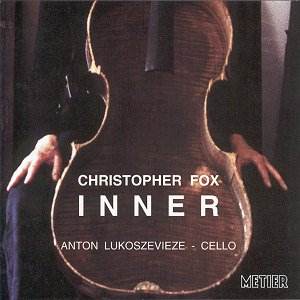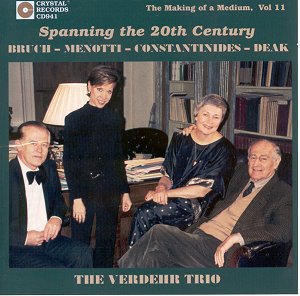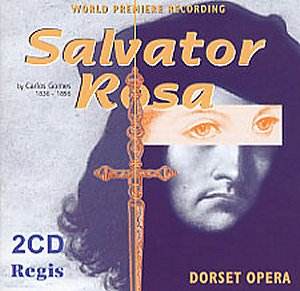 Composer: Christopher Fox
Composer: Christopher Fox
Works: Straight Lines in Broken Times³, chant suspendu, Generic Compositions #3, #4, and #5, inner
Performers: Anton Lukoszevieze – cello
Recording: Recorded at The Early Music Centre, York, 20-21 April 2001
Label: Metier MSV CD92059
Christopher Fox, a prominent figure in contemporary music, presents a distinctive voice that navigates the intersections of minimalism and complexity. His works, characterized by their intricate textures and innovative use of extended techniques, challenge traditional classifications. This recording offers a compelling exploration of his oeuvre, with a focus on solo cello pieces that reflect Fox’s unique compositional ethos.
The initial piece, “chant suspendu,” unfurls with an intense, ritualistic atmosphere. Originally conceived for cello and piano, the new arrangement for solo cello and computer-generated sounds transforms the work into a sonorous tapestry that immerses the listener in a dense soundscape. The use of a computer-generated drone creates an ethereal backdrop that amplifies the cello’s rich timbres. Lukoszevieze’s nuanced interpretation captures both the urgency and stillness of the piece, showcasing his adeptness at navigating Fox’s microtonal demands. The performance is technically demanding, yet Lukoszevieze’s execution is remarkably assured; he manages to maintain clarity and articulation even amidst the swirling complexity of sound.
In “Straight Lines in Broken Times³,” Fox delves into the retuning possibilities of the cello, employing intervals that challenge conventional harmonic structures. The predominance of three-quarters of a tone creates a unique modal landscape, allowing for a delicate modulation that is both adventurous and accessible. Here, Lukoszevieze demonstrates an acute sensitivity to the shifting tonalities, employing a variety of bowing techniques that highlight the cello’s expressive range. The microtonal shifts serve not only as technical exercises but as vehicles for emotional expression, leading to an engaging and immersive listening experience.
The “Generic Compositions” series introduces a versatile approach to string instrumentation, with each piece designated for different techniques: plucked, bowed, and sliding. This variety showcases Fox’s exploration of instrumental capabilities, as well as the broader spectrum of timbral possibilities. Lukoszevieze’s performance is particularly noteworthy in “Generic Composition #4,” where the bowing technique reveals a shimmering array of sounds that blur the lines between melody and texture. The careful attention to pitch relationships enriches the sonic fabric, inviting listeners to engage with the subtleties of each composition.
The recording quality is exemplary, capturing the intricate details of Lukoszevieze’s playing with clarity and depth. The spatial dynamics of the Early Music Centre enhance the resonance of the cello, allowing for a vivid auditory experience that complements the nuances of Fox’s music. The booklet notes, penned by Fox himself, are invaluable, providing insights into the philosophical underpinnings of his works. The interview with Richard Ayres further elucidates the intimate performer-audience relationship that Fox seeks to explore, a theme that resonates throughout the album.
Fox’s music, often polarizing, thrives on its ability to provoke thought and elicit varied responses. The range of expression found in “inner,” a sprawling 45-minute exploration of interconnected sections, offers a profound listening journey that rewards patience and concentration. This complexity, while daunting, reveals itself as a carefully constructed narrative that embodies the essence of contemporary music’s potential for reinvention.
The recording stands as a significant testament to Christopher Fox’s artistry, supported by Anton Lukoszevieze’s exceptional performance. The combination of technical prowess and interpretative depth elevates this collection, making it a noteworthy addition to the contemporary cello repertoire. As the discourse surrounding Fox’s music continues to evolve, this release will undoubtedly contribute to the ongoing conversation about the nature of modern composition and the role of the performer within it.



